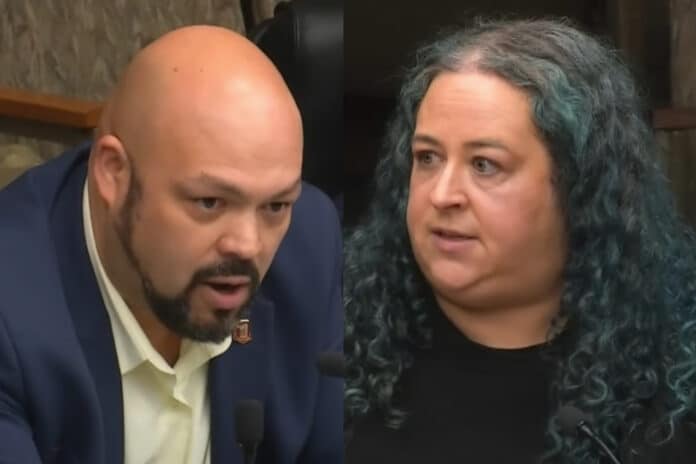
Democratic members of the Minnesota House of Representatives rejected an amendment that would have allowed local law enforcement agencies to purchase armored and tactical vehicles with state funds.
Last year, Minnesota state government authorized legislation that allocated $300 million to law enforcement agencies around the state. Agencies that received the money could use those funds to update equipment, offer raises, give out retention bonuses, and other needs. However, the agencies who received those funds were barred from using the money to purchase armored or tactical vehicles.
On Tuesday, the Public Safety Committee of the Minnesota House of Representatives heard HF 4370. Authored by Rep. Aisha Gomez, D-Minneapolis, HF 4370 would require law enforcement agencies who received some of the $300 million state funds to report on how they use those funds.
Rep. Jeff Witte, R-Lakeville, offered an amendment to the bill that would have permitted police departments to purchase an armored or tactical vehicle with those funds.
Used in a variety of public safety situations, armored vehicles provide police officers with safety in negotiations, riots, and active shooter situations. Just a week ago, police in Oakdale encountered a violent criminal who opened fire on the responding officers. Police could be heard on their radios saying “shots fired, shots fired, get us armor here dispatch, ASAP.”
An armored vehicle was eventually used to help officers reach safety.
In offering his amendment, Rep. Witte spoke about the recent Burnsville tragedy in which three first responders were shot and killed. A former police officer himself, Rep. Witte said law enforcement on the scene at the Burnsville shooting were “radioing with dispatch begging for more armored vehicles.” Rep. Witte also referenced the Oakdale incident when he brought forward his amendment.
However, Rep. Gomez opposed the amendment, calling it “a classic solution in search of a problem.” The Minneapolis legislator said the money given to public safety agencies can be spent on numerous things, saying the funds were “incredibly permissive.” Concluding her comments, Rep. Gomez attacked the amendment as “not a serious thing.”
In response, Walter Hudson, R-Albertville, said Democrats have given no definitive answer on why police departments should be barred from using the state funds to purchase armored or tactical vehicles.
“The people who we entrust to protect us, to stand between us and bad actors are getting shot at, crying over the radio, asking for help, and the answer of this body is no,” said Rep. Hudson, denouncing the Democrats in the committee. After speaking out, Rep. Hudson left the committee and did not return.
I refused to sit through a charade in the House Public Safety committee yesterday as Democrats shamelessly pretended to support law enforcement while denying essential resources to protect them.
They're on the record admitting they didn't want to give *anything* to cops. https://t.co/rUetLpg2tl pic.twitter.com/hiyb4NZ2TO
— Walter Hudson (@WalterHudson) March 20, 2024
Later, Rep. Elliott Engen, R-White Bear Township, asked Gomez why Democrats were saying no to the amendment. Rep. Gomez responded by saying, “Nobody’s asking for this, there’s no need for it.” The Minneapolis politician added that she was concerned about the “militarization of police.”
Rep. Matt Grossell, R-Clearbrook, described Gomez’s comments as “out of line” and an attack on law enforcement. The Republican lawmaker also said the idea that police are being militarized is a “load of garbage.”
Several Democrats on the committee said they had not heard their communities request armored vehicles.
Rep. Witte’s amendment was defeated on a party-line vote; 8 Democrats voted against it, 5 Republicans voted in favor.
The bill itself, requiring law enforcement agencies to report how they spend the state funds, was eventually referred to the Tax Committee on a voice vote.
On Wednesday, the Chisago County Sheriff’s Office put out a statement describing an armored police vehicle as “a big truck with metal plates on it that has the ability to suck up bullets and protect our cops. It’s an incredibly defensive tool. It’s a deescalating chess piece. It gives us more options for peaceful outcomes.”








